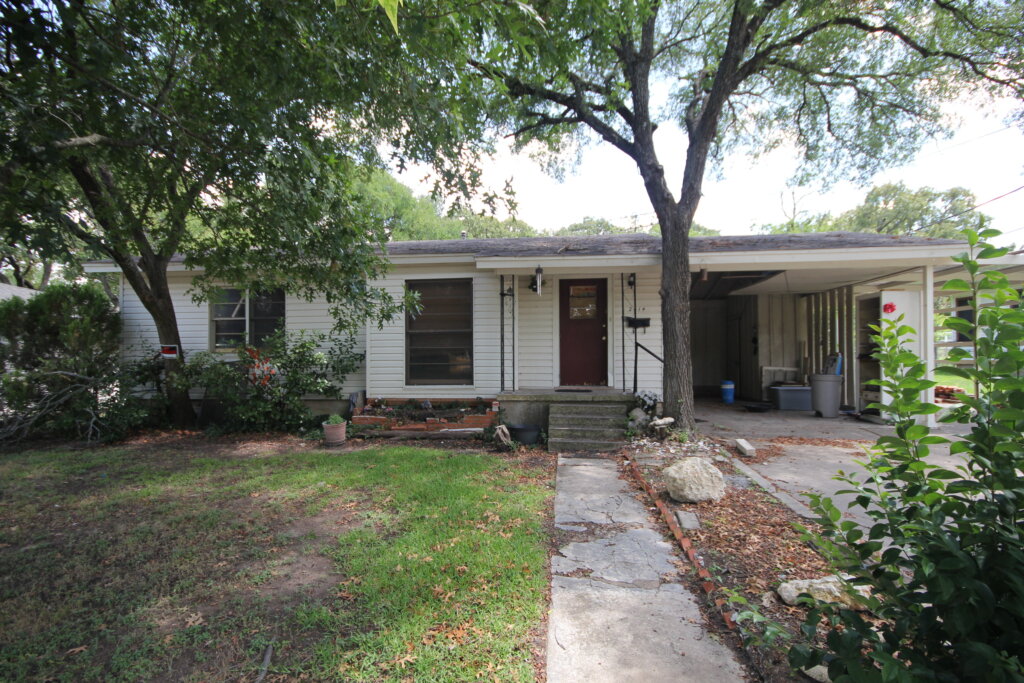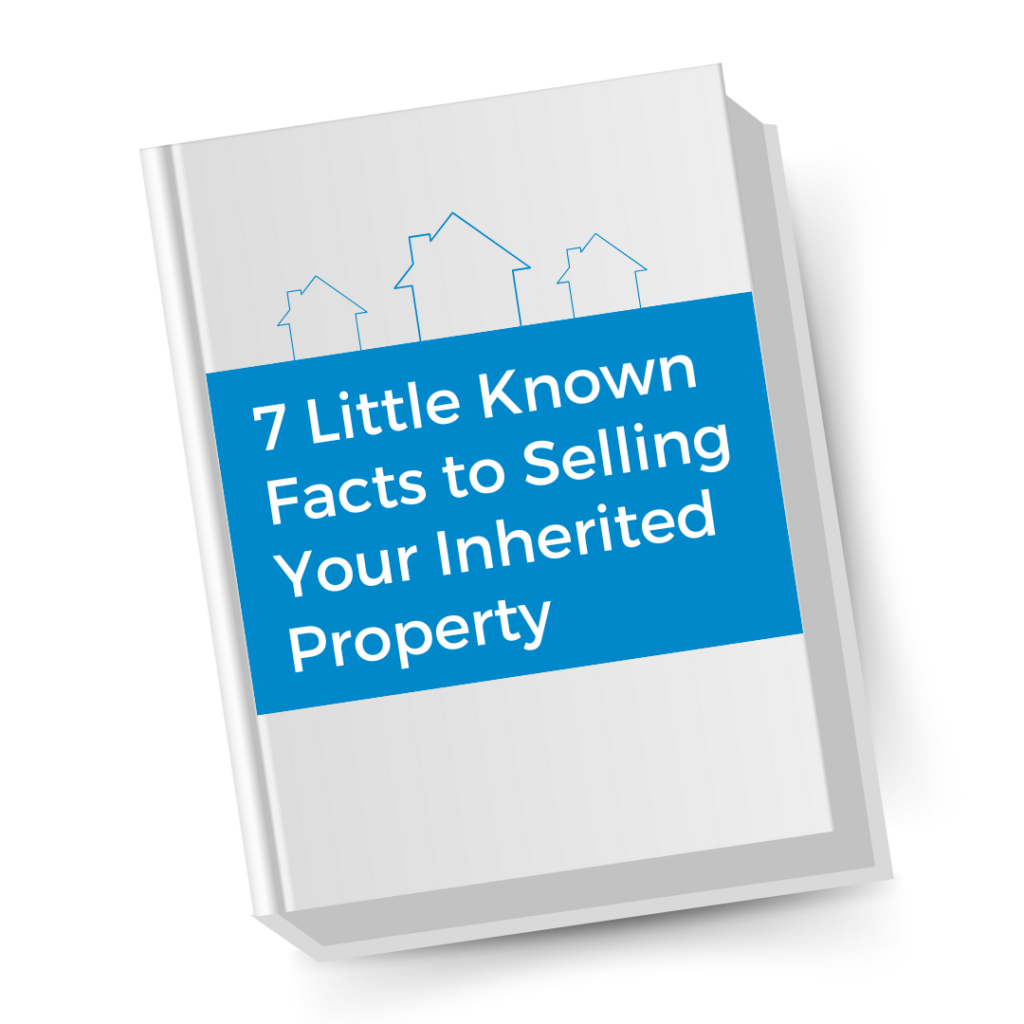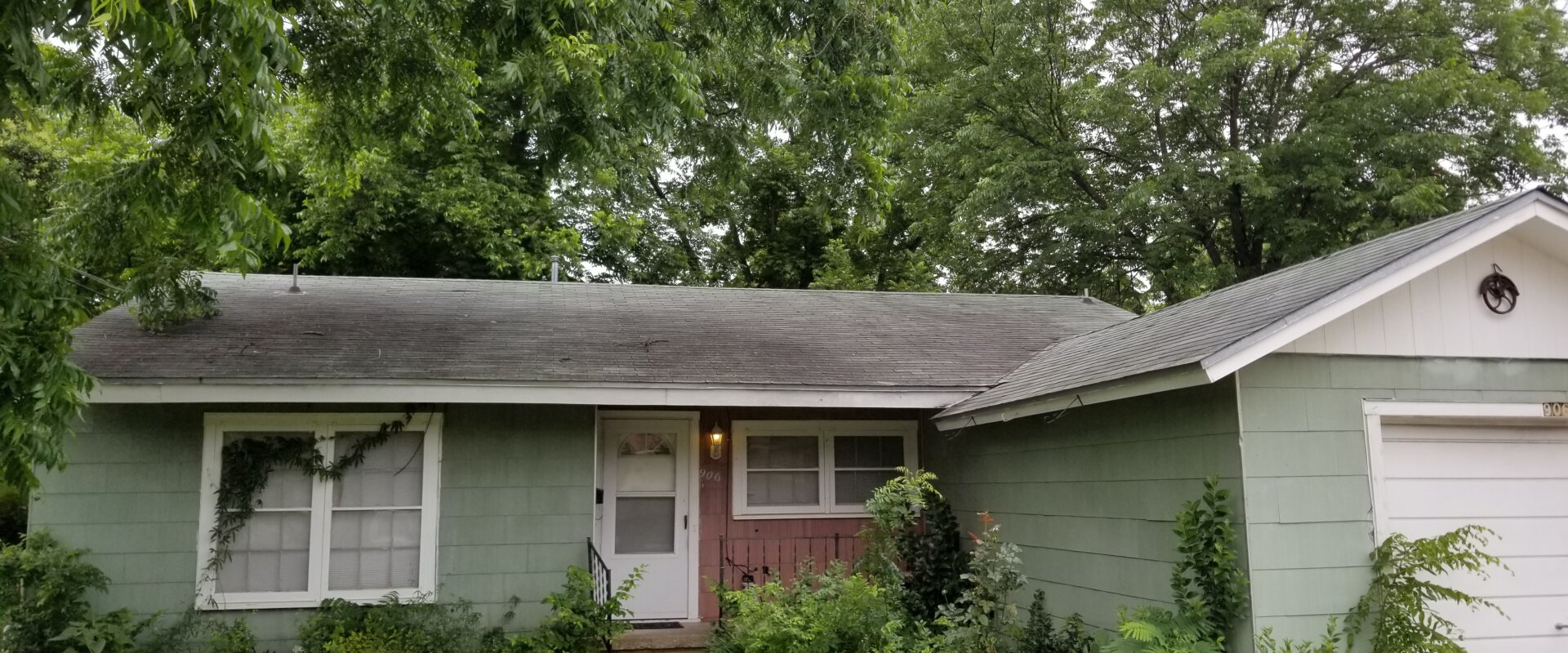Inherited an Unwanted House in Texas and Having to Deal with Probate?
Inheriting an unwanted house is many times very stressful. When an individual passes away, whether they left a will designating beneficiaries or not, their assets automatically fall under the responsibility of the estate’s executor or the Court. Probate, the legal process for handling the estate, comes in two forms: formal and informal.
Informal probate typically involves minimal court intervention, usually when there’s a valid will in place or no disagreement among the heirs as far as selling the inherited house. However, this article focuses on the more complex formal probate process.
Formal probate process occurs when the estate faces significant debts, disputes over the will’s validity, or challenges locating the original will. In such instances, court involvement becomes necessary with the inherited house and probate.

Can an Inherited House Be Sold While in Probate?
Certainly! The sale of an inherited house in probate can be initiated by three different entities, depending on how the estate is structured upon the individual’s passing:
- The executor of the estate: This is a person designated in the will to oversee the distribution of assets and the inherited house. They have the authority to sell probate property as part of the estate settlement process.
- The administrator of the estate: In cases where there is no will (intestate), the court appoints an administrator to manage the estate. This individual is responsible for handling the estate’s affairs, including the sale of an inherited house, on behalf of the heirs or beneficiaries.
- The Court: In situations where the deceased has no heirs or beneficiaries seeking administration, the Court itself may take on the responsibility of managing the estate and deciding the distribution of assets. This includes overseeing the sale of an inherited house and probate property.
Once the executor, administrator, or the Court determines the rightful heirs or beneficiaries entitled to the property, they can proceed with the process of seeking approval to sell the inherited house through the appropriate legal channels.
Download Your FREE Guide to Navigate Selling Your Inherited Property
Just put in your name and email, click “Submit” and we’ll email you the Free Guide right away.

What Does it Take to Sell an Inherited House in Texas While in Probate?
The main job of an executor is to protect the estate’s belongings until they’re given out to the people named in the will. But sometimes, the estate might have big debts or unpaid taxes because someone didn’t take care of the property. In these situations, the executor, administrator, or the Court can sell the property to pay off these debts, even if there are people who should inherit the property.
Example…
Consider an elderly woman who passes away, leaving behind an executor to manage her affairs. She has two heirs. At the time of her passing, she has incurred debts totaling $90,000 from both medical expenses and credit card bills. Although she owns a home valued at $150,000, she possesses no liquid assets and owes $80,000 to the hospital and $10,000 in credit card debt. Despite her demise, the estate remains responsible for settling these outstanding debts. If the heirs cannot cover the debts themselves, the executor must sell the property to clear the $90,000 debt. After the sale of the house, the remaining $60,000 would be divided between the two heirs.
A property in probate may also be sold if the person died with no will and there are no immediate Heirs. In this situation, the Courts can order the property to be sold and any profits distributed to the closest relatives.
Get An Offer Today, Sell In A Matter Of Days…
Steps for Selling an Inherited House in Probate in Texas
If you’re dealing with selling a house stuck in probate in Texas, don’t worry! Depending on the rules in your area, you can usually sell a probate house in four steps. First, you need to choose someone to handle the sale, called an executor or administrator, if the deceased didn’t already pick one.
If you’re the executor or have agreed with the executor on what to do, you get to decide if you want to sell or keep the house. Maybe the estate owes money, or you inherited a house far away that’s hard to manage. Selling might be the best choice. But before you do, it’s important to get the house appraised by a professional. After that, you can ask the Court to let you sell it yourself with a good real estate agent who knows about probate houses, or you can sell it directly to an investor, like us.
Decide How to Sell an Inherited House:
- Valuation or Appraisal
- The first thing to do is find out how much the property is worth. You can do this by getting a valuation from a trusted professional or hiring an appraiser who knows the local rules about property value. In many states, the Court says the property has to be sold for at least 90% of its appraised value. That’s why it’s important to pick an appraiser who knows about probate properties, so you get a fair price without the value being inflated.
- Listing the House
- Once you’ve got the appraisal, you, as the executor, or your legal helper, need to tell the court you want to sell the house and other stuff. This paper will say how much the house is worth and how you want to sell it, like through an auction or by finding a buyer on the regular market. Once the court says okay, you can start telling people the house is up for sale. Whether you sell it by yourself, use a good real estate agent, or talk directly to an investor, make sure they know how to deal with probate properties so everything goes smoothly.
- Offers
- As you start getting offers, whether there are a lot or just a few, you’ll need to pick the one that’s best for you. It’s important to think about why you’re selling the house. Do you need to sell quickly to pay off debts? Are you willing to wait for a better offer? Or does the house need a lot of work, and you need a buyer who can handle fixing it up? These things help you decide when and how to sell a property in probate.
- Knowing what you want to achieve by selling the property will help you pick the best offer and move on to the next step of the process.
- Notice of Proposed Action
- When someone wants to buy the property, it’s vital to explain that the sale has to wait for the court’s approval. This is a legal requirement, but buyers who don’t know much about probate might be surprised by the extra time it takes. Because of this, some buyers might overlook probate properties, even if they’re priced well for a quick sale. The longer wait might discourage a buyer who thinks it’s not worth it. But if a buyer is okay with waiting, the court will review the offer and decide if the property can be sold.
- Bidding
- For auctions, a probate property can be advertised for sale even before the Court says it’s okay, to get more people interested in bidding. In auctions, the Court usually watches over the bidding process, following strict rules. This is usually a last option. If someone wins the bid, the executor asks the court to let them sell the property. But if any heirs disagree, the sale might stop, and the property’s status is on hold while the Court decides what to do next.
- Finalization of Sale
- Hopefully, selling your house goes smoothly. Even if there were some problems, once the Court says yes to an offer, it’s time to finish the sale. The executor or lawyer has to file a final account and ask the Court to give out the property. When the Court says okay, you sign some papers, and the house sale is done for real.

“My situation was unique, Lisa at LJE Property Solutions finds a way to make it happen! An absolute pleasure to work with.”
-Cari P
Mistakes to Avoid When Selling an Inherited Probate Property
- Moving Too Quickly
- When someone dies, their family might want to sell the property quickly so they can focus on grieving. Or, if there’s a lot of debt with monthly interest adding up, the executor or administrator might sell the house fast by pricing it lower than its actual worth to pay off the debt. Sometimes, a quick sale happens if the house is in bad condition or needs a lot of repairs that the beneficiaries don’t want to deal with. They might sell it for less than it’s worth just to get rid of it as it is.
- Not Completing a Real Estate Disclosure
- Real Estate Disclosure laws can be almost as tricky as dealing with probate laws, depending on where you live. These laws say you have to tell buyers about certain things, like lead paint or asbestos, before they buy the property.
- In many states, sellers and their agents must give written notice of any important problems in the home. According to the National Association of Certified Home Inspectors, these problems are called “material defects.” They’re specific issues with parts of the house that could really change its value or be risky for people living there. But just because something is old and not working well doesn’t always mean it’s a material defect.
- Real estate agents know how to handle these tricky rules well, but inheriting a house you’ve never lived in can be tough. How would you even know what to tell buyers? In some states, people selling a house they inherited might not have to fill out the usual disclosure forms. That’s because they never lived in the house, so they might not know about any problems it has.
- If you’re not sure about the laws in your state, get advice from someone who knows about probate real estate, like a real estate agent or investor who’s dealt with probate properties before. If you’re thinking about selling to an investor, make sure they’re experienced and willing to take on the risks that come with buying a property in probate, like not getting full disclosure. Just remember, you’ve got choices!
- Failing to Hire a Lawyer
- We can’t stress this enough: getting help from a real estate lawyer who knows about probate can really speed things up and make them easier. Trying to do it all on your own can be really hard and take a lot of time. A good lawyer will know how to ask the Court for things the right way, so you can sell the property quickly. They’ll also help you understand all the legal stuff, which can make things less stressful and help you avoid problems. Even just talking to a lawyer can help you see any problems you might not have noticed before, making everything go more smoothly.
- Waiting Too Long to Start the Probate Process
- When someone we care about dies, it’s natural to take time to grieve and deal with the loss. But it’s also important to think about what happens to their property, especially in probate. During this time, things like property taxes, utility bills, and mortgage payments still need to be paid. If you wait too long to do something about it, the costs can quickly add up and make it hard for you financially.
How to avoid Scammers when dealing with Inherited houses and going through probate!
Who Buys Inherited Houses in Probate?
We do! LJE Property Solutions is a direct house buying company that has built our reputation on buying houses for cash with less stress and less fees. Contact us today and get a competitive cash offer for that house or property that’s stuck in probate. We buy homes in any condition. We can help you with the convoluted process of selling a house in probate in Texas, making the process faster and as stress-free as possible.
![We Are House Buyers in Texas [There is A Reason So Many Sellers Trust Us]](https://cdn.carrot.com/uploads/sites/64690/2025/01/LJE-Property-Solutions-Logo.png)
